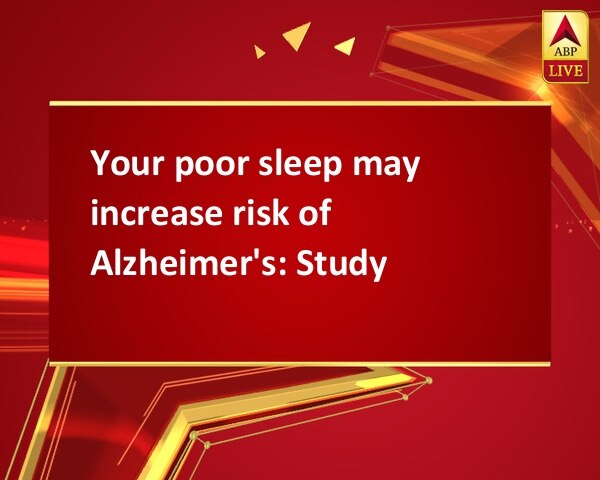
Your poor sleep may increase risk of Alzheimer's: Study

Washington D.C. [USA], July 19 (ANI): Beware! Breathing problems during sleep may be a signal of an increased risk for Alzheimer's disease, warns a study.
According to researchers, treating conditions like sleep apnea and hypopnea (shallow breathing) might lower the risk of dementia or at least slow its progression.
"What's exciting about these three studies is that they are looking at biological changes in the brain that may underlie a relationship between sleep problems and Alzheimer's disease," said Keith Fargo from Wheaton College in Illinois in the US.
People with sleep apnea should get treatment, Fargo said, because "even if you don't have Alzheimer's disease and will never develop it, sleep apnea itself can cause cognitive [thinking] problems, which can be turned around with treatment."
Sleep apnea affects three in 10 men and one in five women; it occurs when the upper airway closes partially or fully, causing pauses in breathing during sleep, the researchers explained.
They found that sleep apnea was associated with increased development of beta-amyloid plaque in the brain.
According to the researchers, sleep problems accelerate the development of amyloid plaque in both people without dementia and in those already suffering from dementia.
The findings indicated that sleep apnea was tied to increased deposits of beta-amyloid in the brain and decreases in beta-amyloid in spinal fluid. They also saw increased levels of tau protein-another marker of Alzheimer's.
The team looked at the accumulations of amyloid plaque in the brains of more than 500 people who did not have dementia.
The findings showed that people with sleep problems had more of this plaque than those who did not have sleep difficulties.
In a second study, Megan Hogan and colleagues did a similar analysis, which looked at the effects of sleep problems in nearly 800 people who had early signs of memory and thinking problems, called mild cognitive impairment.
Hogan's team also found that levels of beta-amyloid were higher in those with sleep problems than among those without them.
"These findings indicate that sleep apnea may be facilitating cognitive decline," she said.
The findings were presented at the Alzheimer's Association conference in London. (ANI)
This story has not been edited. It has been published as provided by ANI
Top Headline
Trending News

and tablets



























